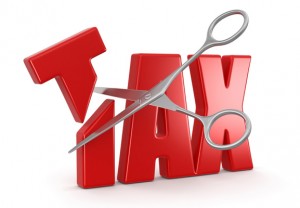If you want to maximize your wealth then it’s important not to leave your hard earned cash simply sitting in a savings account. Even those accounts with the best interest rates may not provide you with a return that is higher than the rate of inflation. Investing your money can generate significant returns, however you need to get it right. Everyone would like to become a better investor but they sometimes get into a twist! Here are a few simple suggestions to avoid this.
Stop watching the market and start watching your stocks
Just because the market is frothy (i.e. an excess of optimism and investment speculation), this doesn’t mean your stocks are growing in real value. Just because the market is sinking, this doesn’t mean your stocks will lose value. Unless you look at your company and how it’s priced, you really can’t make an informed decision about whether to sell. Falling prices often cause investors to panic and sell everything, and rising prices may make them think that almost every investment is a sure thing.
Be alert to misinformation about your investments
It may sound counter-intuitive, but spending too much time listening to so called “experts” can send your portfolio straight downhill. These “experts” are everywhere and most of them can be very persuasive. They all claim to know what the market will do next and whether your stock is headed up or down. If you listen to them you may panic and sell too soon or buy stocks you shouldn’t buy. Instead, listen to the well known and reputable analysts, read company annual reports and quarterly earnings reports and skip most of the “opinions.” This will help you become a better investor.
Get the buy right and don’t worry about the sell
Buy shares in solid dividend paying companies when they’re on sale and hold them until there is a major change. In some cases, this may mean you’ll hold them for a lifetime. Don’t underestimate this method; it proves itself time and again.
Ignore market noise
Any “expert” can tell you why the market goes up or down. If the reasons provided sound flimsy, it’s because they often are. In the short term, the market makes very little sense and fluctuations can happen for a variety of reasons. In the longer term, good companies reward their shareholders and their prices reflect this.
Diversify your portfolio
Don’t buy housing stock when the housing market starts to decline. Wait to see if it drops any further and hold out for any bargains to diversify your portfolio. As time goes on and you take advantage of these economic cycles, you’ll still end up with a diversified portfolio, but it will be composed of stocks you purchased at bargain prices and this makes you a better investor.
Balance profits and losses
Sooner or later, you’ll need to raise cash and will want to sell some stock. Be careful how you do it as some investors only want to sell dud shares, while others will only sell those that make a profit. The former may have you selling stocks that are just about to turn around, while the latter will leave you with a stack of duds and a big capital gains tax bill. It’s always better to balance winners against losers, which minimises your tax exposure, cleans the junk out of your portfolio and allows you to take some profits.
Don’t confuse a great company with great stock
Just because a company is making tons of money and has low debt and great management does not mean its stock is a good buy. Some great companies have share prices that have been bid up to unsustainable levels. If you like the company, wait for a temporary drop in the share price. Sooner or later, you’ll usually get one.
Take a basic accounting class
It may mean a little more work, but learning to understand a profit and loss statement will make you a better investor and other fundamentals of business accounting will give you a huge advantage in understanding whether the shares you’re buying are financially healthy.
By taking the time to understand how the markets work and how companies are valued, you can relax in the knowledge that your long-term results will almost certainly beat any fixed-income investment you can find.








Comments are now closed for this article.